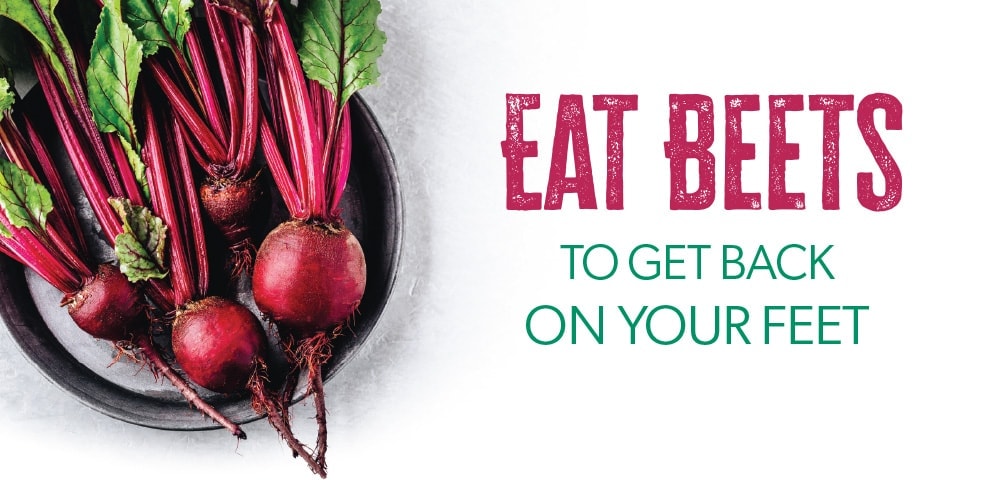
Eat your veggies!
This well-established advice is an essential part of our daily nutrition habits, and for good reason. Rich in vitamins, minerals, and important phytochemicals, abundant vegetable intake promotes health and reduces chronic disease risk. Among the various vegetables available, beetroots have gained scientific attention in recent years.
Low in calories and fat, beetroots are also a good source of protein and dietary fiber. Although beetroots have a high carbohydrate and sugar content, the body can readily convert these compounds into energy. Research has noted the role of beetroots in supporting physical performance, vascular health, cardiorespiratory disorders, and diabetes, thanks to vital bioactive compounds listed below:
- Vitamins (C, B1, B6, A, K, E, plus β-carotene)
- Minerals (calcium, iron, magnesium, potassium, selenium, zinc)
- Nitrates
- Betalains
- Polyphenols
Beetroots are some of the highest dietary sources of nitrates, a compound also found in other vegetables such as spinach, lettuce, celery, and radish. The body can convert dietary nitrates into nitric oxide, a signaling molecule essential for health. One study found that beetroot juice supplementation led to a 21% increase in nitric oxide levels 45 minutes after consumption. That’s impressive!
Nitric oxide has been shown to relax and dilate blood vessels, improve blood flow, reduce blood pressure, and increase nutrient and oxygen delivery to the heart, brain, and muscles. Additional benefits of nitric oxide include immune function support, glucose and calcium homeostasis, and regulation of the mitochondria, our energy powerhouses.
Our body’s ability to produce nitric oxide decreases with age, increasing our risk of high blood pressure and cardiovascular disease. However, increased dietary intake of nitrates with beetroot juice has been shown to influence blood pressure. In one systematic review, the efficacy of beetroot juice supplementation was associated with significantly lower levels of blood pressure. An additional review of studies looking at the health benefits of beetroot juice found that because of their support of blood pressure, beets “should be promoted as a key component of a healthy lifestyle” in healthy and hypertensive individuals.
Beetroot juice is associated with significantly lower levels of blood pressure.
High nitrate levels in beetroot juice have also been investigated for their sport-enhancing benefits, especially in endurance activities. Nitrates can impact other factors such as oxygen uptake, blood flow, platelet aggregation, heart rate, cardiac output, and performance. Nitric oxide supports the more efficient use of oxygen in the body, thereby making beetroots a great choice for athletes and anyone with an active and demanding lifestyle. Research also points to the benefits of beetroot juice supplementation for individuals with peripheral artery disease, helping them to exercise with less pain and at higher workloads for longer time periods during individual training sessions.
Betalains are another important active compound in beetroots that possess antiviral, anti-inflammatory, and antioxidant benefits, helping to support health conditions, such as cardiovascular diseases, asthma, arthritis, intestinal inflammation, and diabetes.
Add beetroots to your life.
Beetroots have great potential to be used as a medicinal food, and supplementation has been described as an easy, cost-effective, and evidence-based strategy to reduce blood pressure and support other positive health outcomes. Enjoy this superfood on its own, or generously add it to salads, soups, or smoothies. Fermented beetroot supplements are especially beneficial – the traditional food preservation technique of fermentation helps improve digestibility and nutrient bioavailability for overall health.












